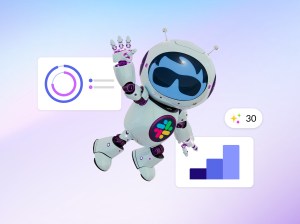Singapore is emerging as a clear leader when it comes to AI adoption, with Singaporean businesses rapidly embracing AI tools to enhance worker productivity and streamline operations. This trend reflects a broader pattern across ASEAN economies, which are positioning themselves at the forefront of AI-driven transformation.
This is according to Slack’s new report, AI Agents Are the Catalyst for a Limitless Workforce, which found that while the adoption of AI tools is increasing globally, Southeast Asia is leading the charge in leveraging autonomous AI agents to improve worker productivity and operational efficiency.
By using contextual business data and tapping into company policies, AI agents support workers by automating processes to save time and simplify complex business functions.
To better understand how AI agents are benefiting businesses, Slack partnered with Qualtrics to survey more than 20,000 desk workers in 15 countries, including 1,328 Singaporean workers.
What are the key findings from the report?
The report found that 57% of Singaporean employees are already using AI tools in their jobs. This is well ahead of the global average of 42%, and higher than major global economies like Australia (43%), Germany (41%), the US (35%) and Japan (27%).
Similarly, Singaporean workers are adopting agentic AI at a faster rate than their counterparts from nearly every other country. 38% of respondents say they have used an AI agent to complete work on their behalf, which is well ahead of the 27% global average and eclipsing adoption of the technology in other Asia-Pacific economies like South Korea (16%) and Japan (6%).
These findings make it clear that Singapore is leading the charge when it comes to AI adoption, driven by forward-thinking businesses that have quickly embraced intelligent tools to empower their workers and streamline their everyday work.
It’s all part of a tectonic shift currently taking place in the world’s workplaces, where employees and executives are tapping the power of agentic AI-enabled platforms like Slack and its integration with Salesforce, to work better, faster and more strategically.
Agentic AI is boosting the productivity of employees
True to expectations, use of AI is boosting productivity: Singaporean respondents who classified themselves as AI experts were 146% more likely to say that they “feel more productive at work on most days” – far ahead of the global rate of 72%.
But what are they doing with all that extra time?
Globally, workers who don’t use AI agents report spending 40% more time on administrative tasks than those who do. In Singapore, the gap is smaller at just 20%, which suggests that workers may be using the time saved by AI to complete even more admin work, reinforcing their sense of being more productive.
In addition, many workers believe their increased productivity is changing the nature of their work, with 69% of Singaporean respondents saying they believe their jobs will become more strategic and creative – compared to 62% globally and 58% in the US.
Overall, Singaporean workers have seen so much improvement from adopting agentic AI. They anticipate the technology will assist them in the future by assuming responsibility for at least a small portion of their everyday tasks.
The strength of this sentiment in Singapore – where 83% of workers expect this to happen – is well ahead of the global average of 70%, and the highest of all 15 countries surveyed.
AI Agents Are the Catalyst for a Limitless Workforce Report
Our report includes visionary predictions from more than a dozen leaders at companies in the tech industry, including IBM, Deloitte, Writer, and Canva. Learn more about how AI agents are transforming workplaces in Singapore and around the world.



What’s next for businesses in Southeast Asia?
With early wins showing the strong benefits of automation, and ASEAN workers primed and ready to capitalise on the benefits of agentic AI, there’s no better time to explore ways to bring digital labour into your own environment.
While the report highlighted numerous benefits for adopting agentic AI, it also showed that to adopt it well, businesses will require investments not just in technology, but also in tools and process training to ensure all employees are aligned with the vision.
Singaporean workers were clear about their use of AI, with 20% reporting they understand how to use AI as part of their job, compared to 17% globally, 7% in South Korea and just 5% in Japan.
Furthermore, employees working in Singapore were more informed about their companies’ AI adoption than their peers in other countries, with just 38% saying they don’t know their company’s AI policies, or that their company doesn’t have an AI policy, compared with 45% globally.
To embrace agentic AI as effectively as possible, businesses must invest in both employee education and in work operating systems that simplify AI adoption.
These investments must also include policies to address the top three concerns raised by report respondents: the risk of unreliable or inaccurate results, privacy, data governance or security concerns, and lack of accountability if AI makes a mistake.
Through its tight integration with Slack’s workflows and the Salesforce architecture, Agentforce provides a strong base to address these concerns, empowering organisations to deploy and customise policy-driven, accountable AI agents within the Slack environment where teams are already working every day.
Enthusiasm for AI is already energising employees in the ASEAN region and around the world. By tapping into this energy and backing it up with the reliable use cases that agentic AI provides, you’ll soon be chalking up productivity wins and helping your employees work more effectively than ever before.
AI Agents Are the Catalyst for a Limitless Workforce
Discover why Slack’s work operating system is the best place to turn agents into true teammates.


























